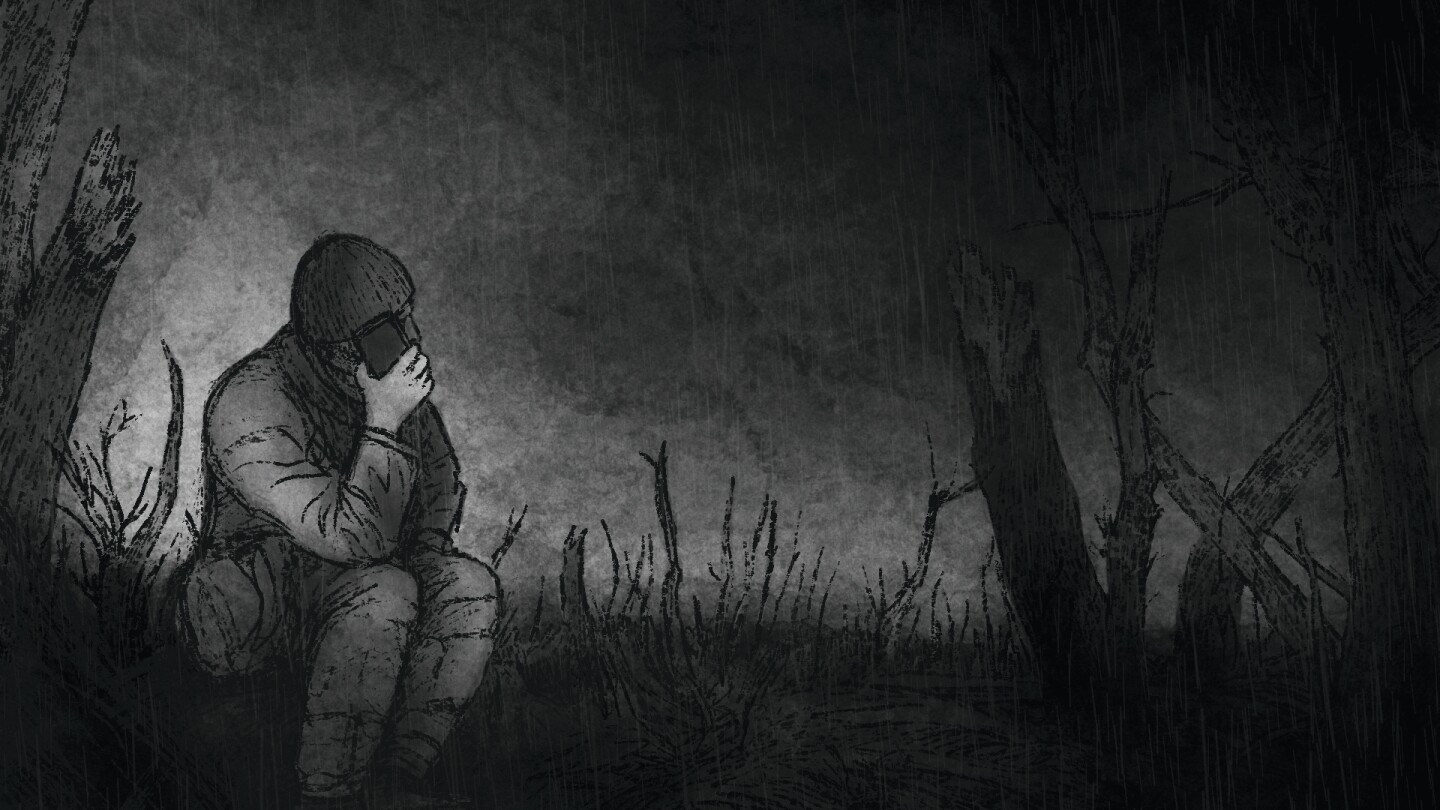In audio intercepts from the front lines in Ukraine, Russian soldiers speak in shorthand of 200s to mean dead, 300s to mean wounded. The urge to flee has become common enough that they also talk of 500s — people who refuse to fight.
As the war grinds into its second winter, a growing number of Russian soldiers want out, as suggested in secret recordings obtained by The Associated Press of Russian soldiers calling home from the battlefields of the Kharkiv, Luhansk and Donetsk regions in Ukraine.
The calls offer a rare glimpse of the war as it looked through Russian eyes — a point of view that seldom makes its way into Western media, largely because Russia has made it a crime to speak honestly about the conflict in Ukraine. They also show clearly how the war has progressed, from the professional soldiers who initially powered Vladimir Putin’s full-scale invasion to men from all walks of life compelled to serve in grueling conditions.
“There’s no f------ ‘dying the death of the brave’ here,” one soldier told his brother from the front in Ukraine’s Kharkiv region. “You just die like a f------ earthworm.”



https://www.bo-alternativ.de/borchert.htm
Thank you for sharing this. I don’t read much poetry, much less in German. But this kept me on the edge of my seat.
Jesus Christ. The first one was beautiful and terrible. This was just naked horror (though part of that was that I’m not a native German speaker, so phrases like “blood-shod” in the first poem might have flown over my head in the second one), but I think it might be more effective for it. I also like that it addresses the populace, more than the politicians/potential soldiers.
Interesting! It‘s the opposite with me, I am not a native English speaker, and I actually didn‘t understand blood-shod. They limp and have blood in their shoes? The pictures that came to my mind reminded me of the Borchert poem. It felt like the adequate reply. I love it for the explicit message: Sag Nein! The horror at its end I find just as horrifying as the Owen poem. Back to back, and we have snapshots of the horrors of WWI, WWII and WWIII.
Shod is basically an archaic form of “shoed,” so it’s soildiers who have worn through their boots and are walking just on blood.
I agree that they’re both incredibly moving and horrifying. I think “Sag Nein!” Reflects the perspective of the German postwar generation on communal guilt, whereas the other is more of an attack on politicians. It seems fitting, based on the wars involved, especially because they’re both calls to action, rather than simply condemnations.
That was a tough read in both ways.